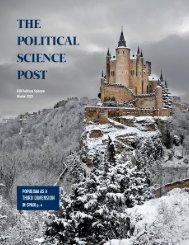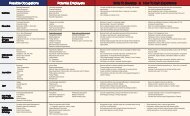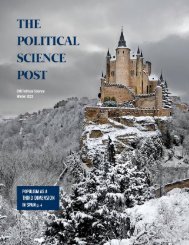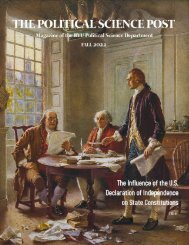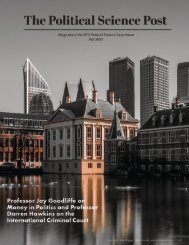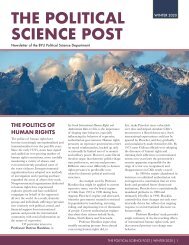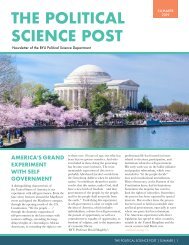Create successful ePaper yourself
Turn your PDF publications into a flip-book with our unique Google optimized e-Paper software.
THE ENLARGEMENT OF THE
EUROPEAN UNION AND NATO
ORDERING FROM THE MENU IN CENTRAL EUROPE
In 2004 the European Union and NATO each added ten new member
states, most from the post-communist countries of Eastern and Central
Europe. In order to prepare for membership, these countries had to make
many thousands of institutional and legal adjustments. Indeed, they
often tried to modernize in just a few years, implementing practices that
evolved over many decades in Western Europe. This book emphasizes the
way that policy elites in Central and Eastern Europe often 'ordered from
the menu' of established Western practices. When did this emulation of
Western practices succeed and when did it result in a fiasco? Professor
Jacoby examines empirical cases in agriculture, regional policy, consumer
protection, health care, civilian control of the military, and military
professionalism from Hungary, the Czech Republic, Poland, Bulgaria, and
the Ukraine.
IMITATION AND POLITICS
REDESIGNING MODERN GERMANY
Following World War II, a poorly funded, piecemeal effort to transfer British
and American institutions into West Germany resulted in many positive
changes for that nation's citizens. After reunification, however, a more
ambitious, well-funded, and systematic effort to establish West German
institutions in the former GDR has been less effective. Through a close
analysis of these two cases, Wade Jacoby explores the conditions under
which one society can serve as a model for the reshaping of another.
In the initial transfer, Jacoby finds, Allied occupying forces sought to build
institutions in Germany that were the functional equivalents of ones they
valued at home. They encouraged the development of selected German
organizations that became co-architects of the postwar society. Several
decades later, by contrast, policymakers in Bonn used exact rather than
functional imitation, and they ignored regional interests when redesigning
East German society. For both cases, Jacoby focuses on attempts to reform
industrial relations and secondary education. For innovations to be "pulled
in" from abroad, Jacoby argues, local civic groups must participate in and
benefit from the institution-building process.
ISSUE
31
FACULTY PUBLICATIONS
21
WORLD POLITICS
A QUARTERLY JOURNAL OF INTERNATIONAL RELATIONS
A 2006 review article in World Politics, one of the leading journals in
political science, “Inspiration, Coalition, and Substitution,” by Wade, guided
an emerging literature on how external actors can create informal coalitions
with domestic leaders in cementing commitments to policy reform. His
remarkably creative 2006 Cambridge edited volume chapter, “How Agents
Matter,” co-authored with his BYU colleague, Darren Hawkins, helped to
launch the application of principle-agent theory to international relations
as it critiqued it, and it remains a standard reference in the literature.
He published scores of other notable journal articles and edited volume
chapters across a remarkably interdisciplinary range of fields including
political science, economics, sociology, public policy, and law.
THE SYAHIM MAG
20



